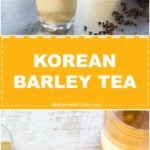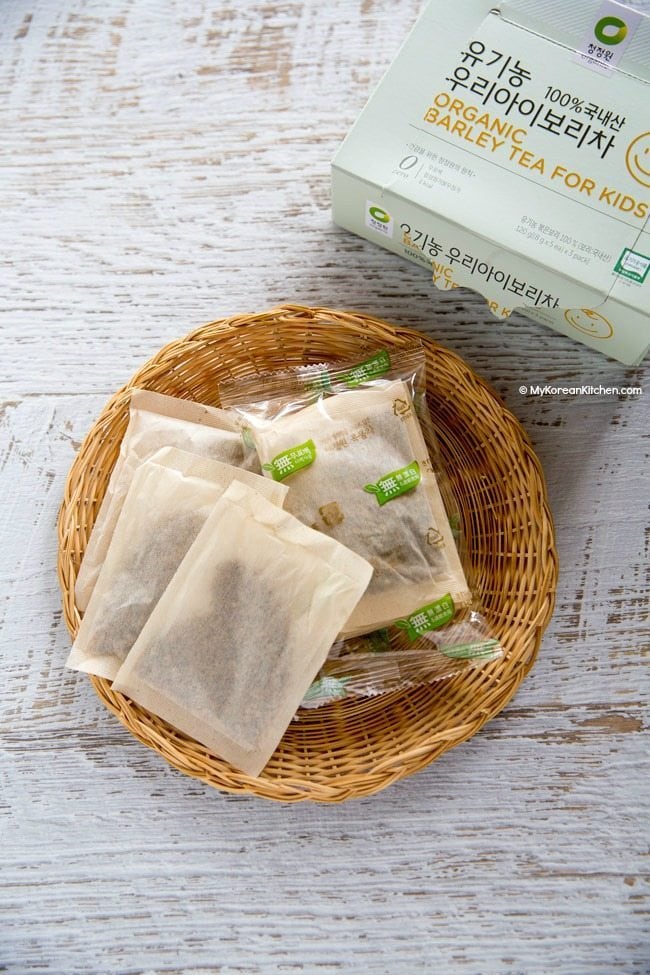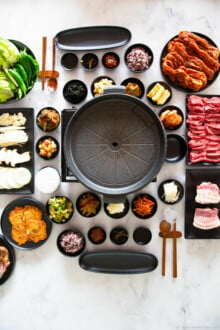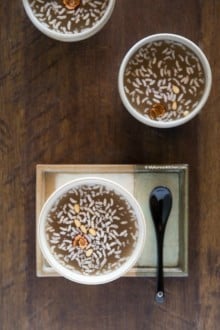Discover Korean barley tea and learn how to make it at home! It’s super easy, delicious and it comes with many health benefits! 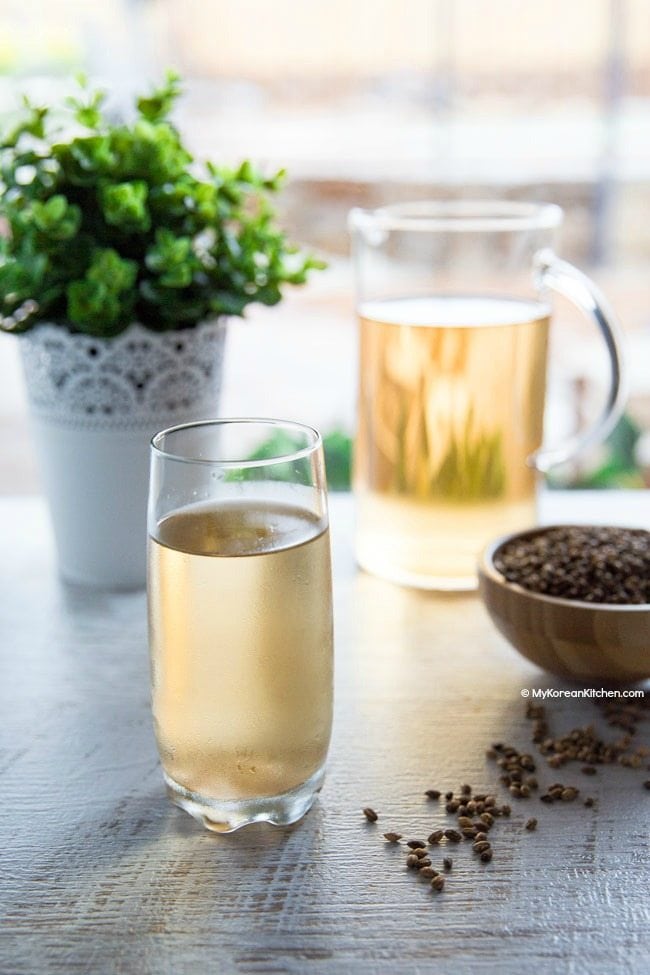
Do you like tea? I do! I don’t drink English style tea much, but I’ve been drinking Korean barley tea and Korean corn tea every day in the last few weeks. (I read that it’s good for my diet! Lol)
And, when I was little, Korean tea was our water alternative at our home.
My mom would put some large quantity of water in a kettle then add some loose grains of tea. Boil it until pipping hot then cool it down by immersing the kettle in cold water. When the tea cooled down, we drank it. That is how we drank our “water” for like 20 years growing up in Korea.
The tea we often drank was made with roasted cassia tora seed (gyeolmyeongja, 결명자). It has a somewhat coffee like aroma, color and bitter sweet taste. I didn’t like the taste as much as some other Korean tea even though my mom kept telling me that this tea is good for improving eye sight! (Maybe that’s why my sight is still good after these many years!)
Though, when I visited my friend’s place, their water tasted different to ours. It’s usually made with either roasted corn or roasted barley.
Unlike cassia tora seed tea, they had a lot milder, nutty and maybe even slightly sweet taste. I absolutely loved these! So you might be wondering what’s Korean barley tea?
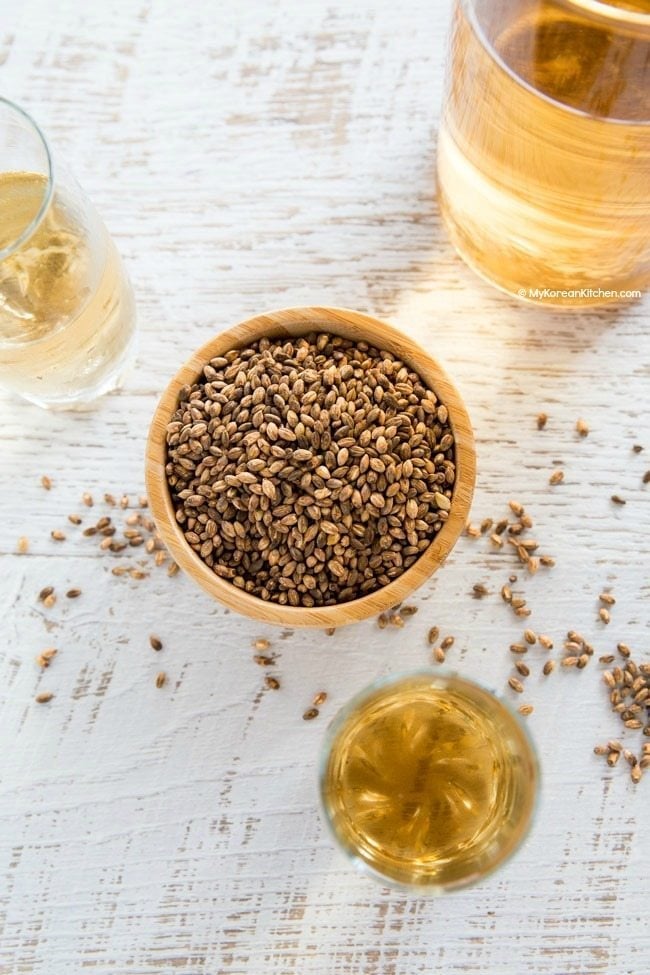
What is Korean Barley Tea
Korean barley tea (boricha, 보리차) is made with roasted barley and water. (I know! So simple!) In Japan, it’s known as mugicha.
You can buy pre-roasted barley grains from a Korean / Asian grocery store or you can roast barley yourself at home.
Alternatively, you can buy roasted barley tea bags, which makes all the work easier and quicker!
The picture below is pearled barley, which I used to make roasted barley because I couldn’t get the pre-roasted barley grains. Roasting barley is quite easy and straightforward. I will show you how soon.
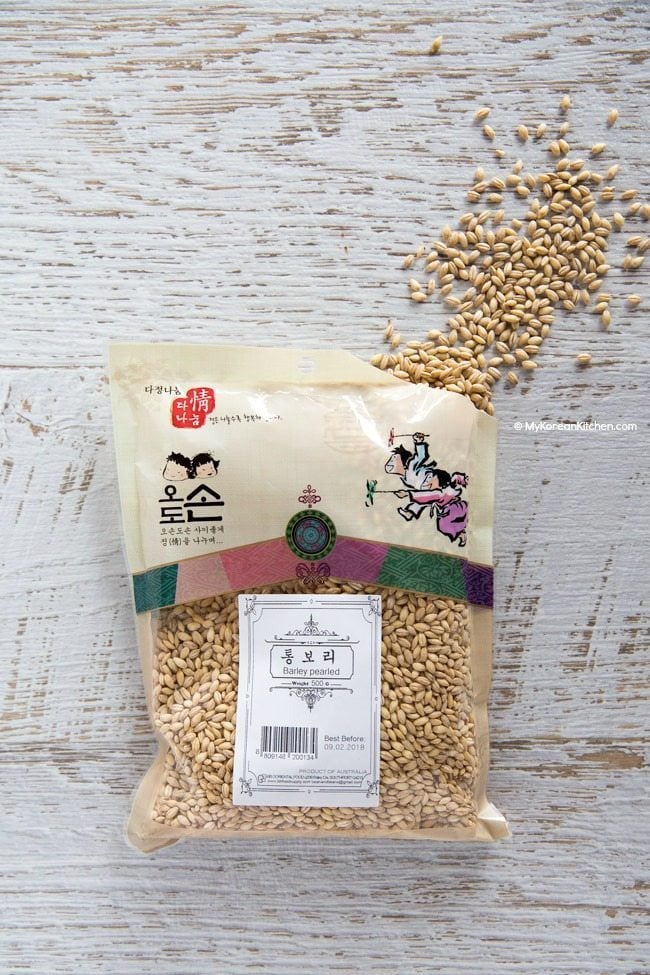
Benefits of Korean Barley Tea
I didn’t know these until recently, but apparently there are some benefits of having Korean barley tea!
Though, what I’m about to spill out below is very high level and is for information only. Consult with your medical / health professional if you want to use it for medicinal purposes.
Korean barley tea
- is caffeine free and there’s no known side affects. So you can drink as much as you like any time of the day
- can help with digestion
- can help with weight loss
- can help control blood sugar level
How great is this tea!?
Korean Barley Tea for Babies
Many Korean mom’s give barley tea to their babies, and it’s usually when the baby is around 6 months old. There are even barley tea’s specifically made for babies in Korea. These products use non bleached tea bags.
I don’t think there’s any specific reasons for giving the barley tea to babies. I certainly didn’t do that with my daughter. She’s now nearly 4 years old and she thinks the taste of barley tea is yucky. (According to my hubby, it has an acquired taste.) But I tell you, it’s nothing like Kimchi! Lol. I hope it grows on her eventually!
Anyway, I hope you enjoy making some Korean barley tea at home. It’s a perfect cooler drink in summer! (It’s also great in winter. Just serve it warm or hot.) 🙂
P.S. If you like Korean tea, I suggest these teas for you to try too! Plum Tea and Citron Tea
Ingredients for Korean Barley Tea
- 2 liters water
- 3 Tbsp roasted barley grains , or more to taste
* If you’re using a barley tea bag, follow the package instruction. It’s typically 2 L boiled water per one tea bag (10 g / 0.4 ounces)
** 1 Tbsp = 15 ml
How to Roast Barley
(This step is only relevant if you are using non-roasted barley)
1. Preheat a wok or skillet over low heat. Add the barley and stir around until it browns. (It takes about 10 to 12 mins.) FYI, I didn’t use any cooking oil. 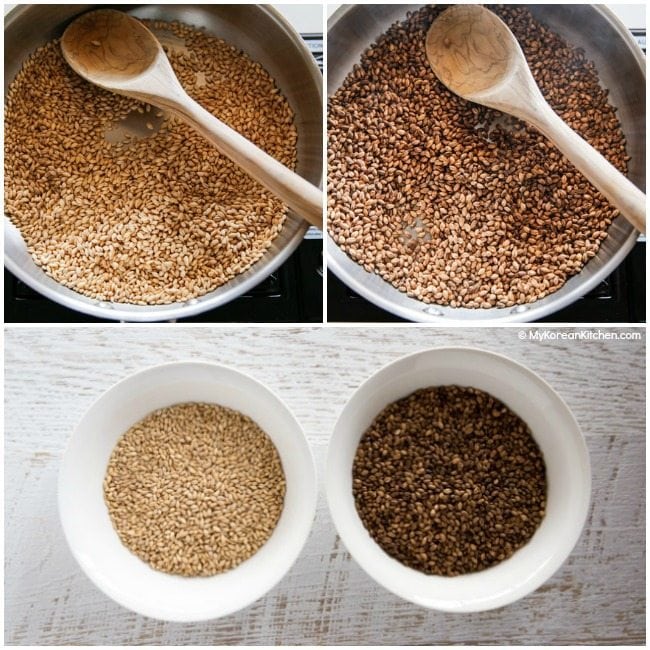
How to Make Korean Barley Tea
A tea bag version
1. Boil the water in a kettle (pot) until rapidly boiling. Remove the kettle from the heat then add the roasted barley tea bag. Brew it for about 10 mins. Don’t forget to squeeze out the tea bag using tongs, to get the last drop of essence. Discard the tea bag. You will noticed that the color of the water has changed to a brownish color. Cool it down. (You can submerge the kettle in cold water to make this process quicker.) Transfer the tea into a jug then refrigerate until needed.
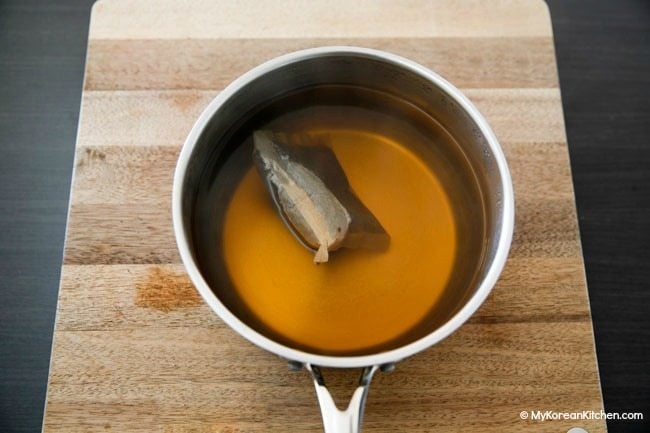
Loose roasted barley grains version
1. Boil the water in a kettle or pot until rapidly boiling. Add the roasted barley (in a tea strainer container if you have one) then boil further 5 mins on low to medium low heat. Remove the kettle from the heat and remove the roasted barley from the kettle. Cool the tea down then transfer it into a jug. Refrigerate until needed. (If you didn’t use the tea strainer container, you will have to use the strainer to sieve the grains).
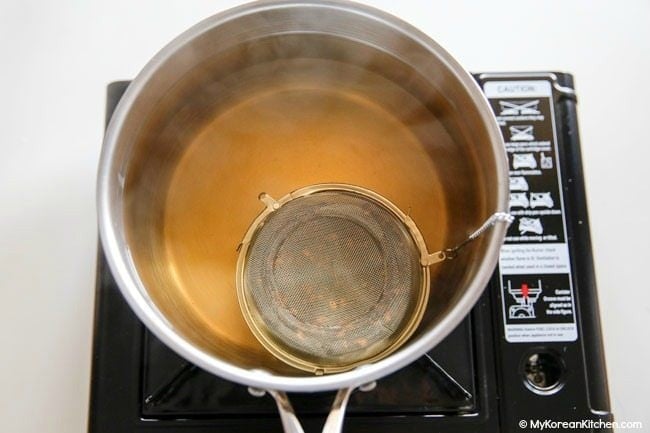
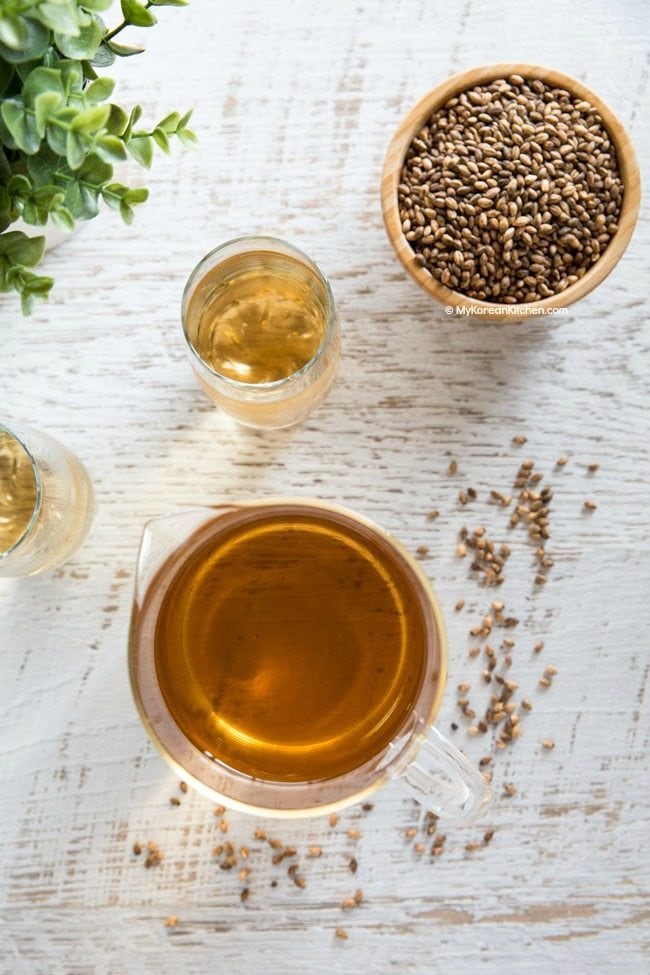
Love Korean food? Browse lots more Korean recipes from my easy Korean recipe collections. And subscribe to my newsletter and follow along on Facebook, Pinterest and Instagram for all of the latest updates.
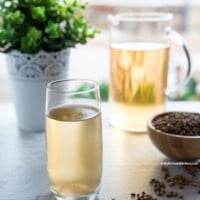
Korean Barley Tea (Boricha)
Ingredients
- 2 liters water
- 3 Tbsp roasted barley grains , or more to taste
Instructions
A TEA BAG VERSION
- Boil the water in a kettle (pot) until rapidly boiling. Remove the kettle from the heat then add the roasted barley tea bag. Brew it for about 10 mins. Don’t forget to squeeze out the tea bag using tongs, to get the last drop of essence. Discard the tea bag. You will noticed that the color of the water has changed to a brownish color. Cool it down. (You can submerge the kettle in cold water to make this process quicker.) Transfer the tea into a jug then refrigerate until needed.
LOOSE ROASTED BARLEY GRAINS VERSION
- Boil the water in a kettle or pot until rapidly boiling. Add the roasted barley (in a tea strainer container if you have one) then boil further 5 mins on low to medium low heat. Remove the kettle from the heat and remove the roasted barley from the kettle. Cool the tea down then transfer it into a jug. Refrigerate until needed. (If you didn’t use the tea strainer container, you will have to use the strainer to sieve the grains).
Notes
Nutrition Info (per serving)
The nutrition information shown is an estimate provided by an online nutrition calculator. It should not be considered a substitute for a professional nutritionist’s advice.
